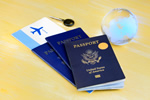How to choose the right international school for your expat kids

How to choose the right international school for your expat kids
As more and more expat families move to far flung destinations in order to take advantage of a decent salary and improved quality of life, the focus on childcare and an international standard of education grows in importance. Over the last few years, international schools have been springing up like the proverbial mushrooms in every popular expatriate hub. Parents are now spoilt for choice, even although many of the better examples have long waiting lists for admission and fees are soaring.
International standard education catering to expat children is now expanding worldwide and has also attracted the attention of wealthy local parents, causing a shortage of places in many popular regions. Newly arrived expat parents can easily become confused as to what’s best for their children, especially if the local language isn’t yet familiar. What’s needed is for global mobility professionals and employers to work in tandem with the schools, helping with application and admissions as well as possibly negotiating discounts for relocating parents.
Some three million expat children and teenagers are now enrolled in international schools worldwide, with the sector now worth revenue of around $25 billion. Education is big business, with a number of famous British private schools opening up in the Middle East and Asia and providing good quality education for British expat children at an eye-watering price. Brits on reassignment generally choose to pay for their offsprings’ education via a total relocation package able to be spent at the employee’s discretion, but soaring fees are causing problems even with high-salaried employees.
A recent survey revealed conclusive evidence of parental requirements such as high quality Western teachers and a diverse mix of children from different nationalities. Most premium schools such as those operated by Britain’s Harrow, Westminster and Marlborough College elite educational facilities have impressive, large campuses as well as mostly Western teaching staff who concentrate on relevant 21st century skills as well as encouraging the emotional and social skills they’ll need in their chosen careers.
Another important aspect of choosing the right international school is access to the right university, often back in the home country. Some 45 per cent of the world’s top unis are located in the UK and USA, with expat children competing with home-country educated kids for relatively few places. It’s therefore important that education at the right international school continues after GCSE level in order to ensure a place at a top Western university. For expat professionals on hefty salaries, it costs less to use a suitable international school than it would to send their children to a well-known home country school with boarding facilities.
Related Stories:
- Is Kuwaitization the unintended result of the oil price crash? - July 20, 2020
- Expats in Malaysia still banned from overseas travel - July 17, 2020
- HSBC Asia to cut back on internal expat relocations - July 16, 2020
- Tips on integrating for newly-arrived expats - July 15, 2020
Latest News:
- Tips on a trouble-free relocation as an expat overseas - July 20, 2020
- Expats find peace in the covid-19 refuge of Dahab town - July 20, 2020
- Is Kuwaitization the unintended result of the oil price crash? - July 20, 2020
- Expats unhappy abut changes to Korean points-based visa system - July 17, 2020
- Chiang Mai and Bangkok no longer bargain locations for expats - July 17, 2020
- Expats in Malaysia still banned from overseas travel - July 17, 2020
- Vietnam welcomes expats to its safe, affordable lifestyle - July 16, 2020
- Asian tiger economies reach out to expats in Hong Kong - July 16, 2020
- HSBC Asia to cut back on internal expat relocations - July 16, 2020
- Tips on integrating for newly-arrived expats - July 15, 2020


